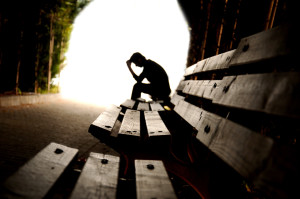 Depression is very common in pulmonary hypertension patients. First and foremost, you are not alone. The majority of PAH patients experience symptoms of depression. These symptoms may be mild, moderate, or severe and they may wax and wane over time.
Depression is very common in pulmonary hypertension patients. First and foremost, you are not alone. The majority of PAH patients experience symptoms of depression. These symptoms may be mild, moderate, or severe and they may wax and wane over time.
Common Symptoms of Depression
- Feeling down
- Lack of interest in or not enjoying activities that you previously enjoyed
- Avoiding social situations
- Poor sleep quality or sleeping too much
- Frequent crying
- Change in appetite, eating too much or too little
- Irritability (your friends and family may notice this one before you do)
- Thoughts of hurting yourself or stopping medications, you should reach out to your care team immediately if you experience any of these types of thoughts.
Additional Stress in Your Life Can Add to Depression
 It is particularly common to feel depressed when your overall health is declining and during periods of additional life stress. Common areas of additive stress come from financial pressures, interpersonal relationships, and declining physical capabilities. For example, many PH patients struggle to maintain full or part time employment. This leads to reduced earnings that are further amplified by financial pressures from expensive medications, doctor visits, and declining earning power.
It is particularly common to feel depressed when your overall health is declining and during periods of additional life stress. Common areas of additive stress come from financial pressures, interpersonal relationships, and declining physical capabilities. For example, many PH patients struggle to maintain full or part time employment. This leads to reduced earnings that are further amplified by financial pressures from expensive medications, doctor visits, and declining earning power.
Maintaining healthy interpersonal relationships may be challenging for PAH patients as well. Favorite activities may become difficult (such as taking walks or bike riding). Friends may keep a distance due to their anxiety or insecurity about saying the wrong thing or simply not knowing how to act.
What can PH Patients Do about Feeling Depressed?
First, it is vital to understand that feeling depressed or blue is not a sign of weakness. It does not mean that you are crazy or defective. Depression is the rule not the exception in patients with complex medical problems. In my practice we talk about depression frequently. I ask my patients about their mood, outlook, activities that they enjoy and their important relationships. Talk therapy is very effective in mild depression. Simply acknowledging that it is okay to feel sad is an important step. Mourning the loss of functionality/vitality/capabilities is normal. However, when feeling sad starts taking over much of your thoughts then a significant problem exists.
Non-medication Strategies to Deal with Depression
- Talk therapy with a counselor, therapist or psychiatrist, or even a close friend or family member. Avoid withdrawing from your friends and family. Allow people to be near you.
- Exercise can be very helpful. Even just going for a slow walk can help release endorphins (chemicals in your brain that help you feel better).
- Join a support group. Connecting with other patients with pulmonary hypertension may help you feel less isolated.
Medications for Depression
Medications are important when depression is more than mild. Agreeing to take an antidepressant does not mean that you are a failure. Nor does it mean that you will need one forever. Antidepressants are not addictive. There are many different types of antidepressants. The most commonly prescribed are in the family of SSRI (selective serotonin reuptake inhibitor). This family of medicines works by increasing serotonin levels in your brain. They are very safe and generally well tolerated. All medications have side effects. SSRI side effects are usually mild but can include some stomach upset or very transient worsening of anxiety in the first week or two. Some patients may notice delayed orgasm (don’t worry this is not permanent). I generally start at the lowest dose of medication. The dose can be gradually increased if the starting dose is not effective. The medications don’t work immediately. Many take 2-6 weeks to take full effect. Your friends and family may notice improvement in your mood a few weeks before you do.
How long should depression be treated?
I generally treat depression in my PAH patients for at least six months and usually a year or longer. After that time period if the symptoms are dramatically better it may be appropriate to gradually taper off the medication.
When is depression an emergency?
Depression can be an emergency if you are having thoughts of hurting yourself or you are considering stopping your pulmonary hypertension medications. If you are having these thoughts you should immediately reach out to your PH treatment team and be seen. If you can’t reach your PH treatment team then call your primary care doctor or even go to the emergency department.
